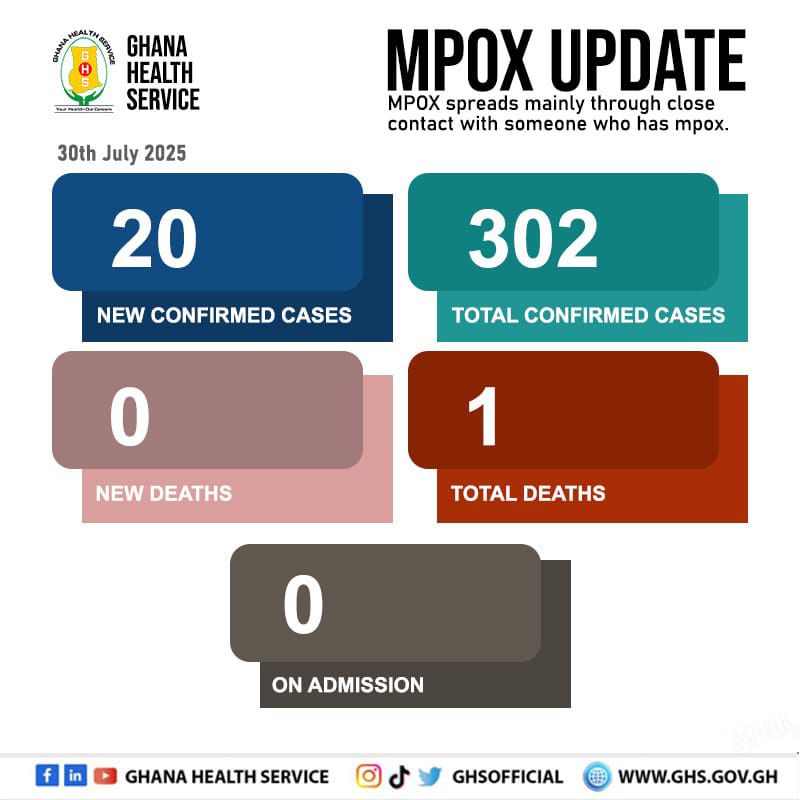The Ghana Health Service (GHS) has announced plans to ramp up nationwide public education on Mpox, following a significant rise in infections. As of July 30, 2025, Ghana has recorded 20 new Mpox cases, bringing the total number of confirmed infections to 302.
The surge comes just days after the country reported its first Mpox-related death on July 22, alongside 23 additional cases, heightening public concern over the outbreak's trajectory.
In an interview with Citi News, Dr. Franklin Asiedu-Bekoe, Director of Public Health at the GHS, revealed that sensitisation campaigns will be intensified across all educational levels, particularly in second-cycle and tertiary institutions, where awareness levels remain low.
“The Ghana Health Service, in collaboration with the Ghana Education Service, has developed guidelines for dissemination,” Dr. Asiedu-Bekoe said.
“Initially, we focused on private and secondary schools, but we are now expanding the campaign to cover all educational levels and the general public.”
He urged the public to remain alert and to report any suspected symptoms to the nearest health facility without delay.
Despite these steps, the government’s response is facing increasing criticism. Dr. Kingsley Agyemang, a member of Parliament’s Health Committee, described the response to the outbreak as "very abysmal."
“Let’s not joke with our health, especially when viral conditions are involved,” Dr. Agyemang said.
“A quick survey will show that many Ghanaians don’t know what to do if they suspect Mpox, and yet cases are escalating.”
He called for an urgent and comprehensive public sensitisation drive, focusing on early detection, preventive measures, and access to healthcare.
Health officials continue to urge the public to avoid close physical contact with individuals exhibiting symptoms such as rashes, fever, or swollen lymph nodes, and to practice good hygiene. The GHS says it is working closely with partner agencies to roll out updated materials, community outreach, and school-based education initiatives in the coming weeks.














